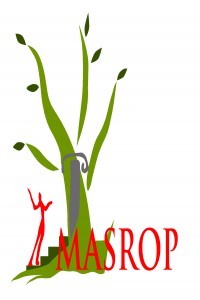Mitolojik Bir Sahne Olarak Thebai
Anlatılarda mitolojik bir sahne görevi gören Thebai, Homeros’tan Apollodoros’a, Sophokles’ten Seneca’ya pek çok eserde, özellikle trajik mitlerle bağlantılı bir şehir olarak karşımıza çıkar. Bu çalışmanın amacı Antik Çağın seçme metinleriyle dönemin coğrafyasının ve anlatısının önemli bir parçası olan Thebai şehrinin bir resmini çizmektir. Ardından şehrin dramatik yapısını ortaya koymak amacıyla, bağlantılı olduğu başlıca mitolojik karakterler belirlenecek, Kadmos soyu ve tanrı Dionysos ile olan bağlantısı açıklanacaktır. Aslında konuyla ilgilenen araştırmacılara kaynak olacak bir derleme oluşturmak amacında olduğumuzdan, Thebai şehrine dair akla gelebilecek genel sorular seçme metinler ışığında yanıtlanmaya çalışılacaktır. Yunan dünyasının kalbi Atina’nın oldukça yakınındaki bu şehre, Antik Çağ insanının penceresinden bakılacak, mitoloji ve trajediyle arasındaki kuvvetli bağın nereden kaynaklandığı açıklığa kavuşturulacaktır.
Anahtar Kelimeler:
Thebai, Mitoloji, Trajedi, Kadmos, Antik Yunan
Thebai As A Mythological Scene
Thebai, which serves as a mythological scene in narratives, appears in many works from Homer to Apollodoros, Sophocles to Seneca, especially as a city associated with tragic myths. The aim of this study is to draw a picture of Thebai, with selected texts of Antiquity, the city which is an important part of the geography and narrative of the period. Then, in order to reveal the dramatic structure of the city, the main mythological characters with which it is connected will be revealed, and its connection with the lineage of Cadmus and Dionysus will be described. Another aim is to provide a compendium that will serve as a reference for researchers interested in this topic; for this reason, general questions about the specific structure of the city of Thebai will be answered. In the light of selected texts, this city, which is very close to the heart of the Greek world, Athens, will be seen from the perspective of the ancient people, and it will be revealed where the strong connection of the city with mythology and tragedy stems from.
Keywords:
Thebai, Mythology, Tragedy, Cadmus, Ancient Greek,
___
- Antik Kaynaklar
- Aiskhylos. Aeschylus, Hepta Epi Thebas Seven Against Thebes, Çev. Herbert Weir Smyth, Ph. D., Londra, 1926.
- Apollodoros. Apollodorus, Bibliotheka The Library, Çev. Sir James George Frazer, F.B.A., F.R.S, Cambridge, 1921.
- Eur. Bakk. Eurpides, Bakkhai Bacchae, Iphigenia at Aulis. Rhesus, Çev. David Kovacs, Cambridge, 2003.
- Hes. EKH. Hesiodos, Erga Kai Hemerai Theogony, Works and Days, Testimonia, Ed. ve Çev. Glenn W. Most, Cambridge, 2018.
- Hom. Il. Homeros, Ilias Iliad, Volume I: Books 1-12., Çev. A. T. Murray, Ed. William F. Wyatt, Cambridge, 1924.
- Hom. Ody. Homeros, Odysseia Odyssey, Volume I: Books 1-12, Çev. A. T. Murray, Ed. George E. Dimock, Cambridge 1919.
- Pausanias, Pausanias, Periegesis Hellados Description of Greece, Volume I: Books 1-2 (Attica and Corinth), Çev. W. H. S. Jones, Cambridge 1918.
- Plin. Nat. His. Plinius, Naturalis Historiae Natural History, Volume II: Books 3-7, Çev. H. Rackham, Cambridge 1942.
- Sen. Oed. Seneca, Oedipus Tragedies, Volume I: Hercules. Trojan Women. Phoenician Women. Medea. Phaedra, Ed. ve Çev. John G. Fitch, Cambridge, 2018.
- Sen. Her. Fur. Seneca, Hercules Furens Tragedies, Volume II: Oedipus, Agamemnon, Thyestes, Hercules on Oeta, Octavia, Ed. ve Çev. John G. Fitch, Cambridge, 2018.
- Soph. OT. Sophokles, Oidipous Tyrannos Sophocles. Vol 1: Oedipus the king, Oedipus at Colonus, Antigone, Çev. F. Storr, New York, 1912.
- Modern Kaynaklar
- Beekes 2010 Beekes, R., Etymological Dictionary of Greek, 1-2, 2010.
- Berman 2002 Berman, D. W., “Seven-Gated Thebes and Narrative Topography in Aeschylus’ “Seven against Thebes””, Quaderni Urbinati di Cultura Classica, New Series, 71.2, 2002.
- Braund 2016 Braund, S., Seneca: Oedipus, Bloomsbury Companion to Greek and Roman Tragedy, Londra, 2016.
- Dixon-Kennedy 1998 Dixon-Kennedy, M., Encyclopedia of Greco-Roman Mythology, California, 1998.
- Fowler 1902 Fowler, H. N., A History of Ancient Greek Literature, New York, 1902.
- Graves 2017 Graves, R., The Greek Myths: The Complete and Definitive Edition, Londra, 2017.
- Hard 2004 Hard, R., The Routledge Handbook of Greek Mythology, Londra, 2004.
- Kühr 2006 Kühr, A., “Invading Boeotia. “Polis” and “Ethnos” in the Mirror of Theban Foundation Myths”, Hermes, 134.3, 2006, 367-72.
- Kühr 2014 Kühr, A., “Ethnicity and Local Myth”, Ed. McInerney, A Companion to Ethnicity in the Ancient Mediterranean, 15, 2014, 228-240.
- Liddell ve Scott 1940 Lidell H. G. ve Scott, R., A Greek-English Lexicon, Oxford, 1940.
- Murray 1901 Murray, G., A History of Ancient Greek Literature, New York, 1901.
- Öyken 2008 Öyken, E., “Marsyas’la İlgisi Var mı?”, Cogito, 54 (Tragedya), 2008, 189-202.
- Parker 1983 Parker, R., Miasma: Pollution and Purification in Early Greek Religion, 1983.
- Rose 2006 Rose, M. L., The Staff of Oedipus: Transforming Disability in Ancient Greece, The University of Michigan Press, 2006.
- Rüpke 2007 Rüpke, J., Religion of The Romans, Çev. R. Gordon, Cambridge, 2007.
- Smith ve Trzaskoma 2007 Smith, R. S. ve Trzaskoma, S. M., Apollodorus’ Library and Hyginius’ Fabulae: Two Handbooks of Greek Mythology, 2007.
- Torrance 2007 Torrance, I., “Aeschylus: Seven Against Thebes” Blumsburry Companions to Greek and Roman Tragedy, Bristol Classical Press, 2007.
- Vernant ve Naquet 1990 Vernant, J. P. ve Naquet P. V., Myth and Tragedy in Ancient Greece, Çev. J. Lloyd, 1990.
- Yayın Aralığı: Yılda 2 Sayı
- Başlangıç: 2007
- Yayıncı: Uğur ALANYURT
